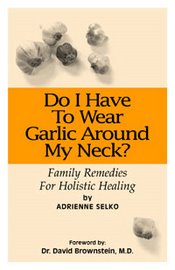Tuesday, February 14, 2012
Omega-3 Can Reduce Chance of Irregular Heartbeat
Researchers are pleased with this result since currently there are not many treatments for the condition."These are meaningful reductions in risk," said Alvaro Alonso, a professor at the University of Minnesota School of Public Health in an article on MSNBC.
The omega-3 fatty acids measured in the new study were eicosapentaenoic acid (EPA), docosapentaenoic acid (DPA) and docosahexaenoic acid (DHA).
They are found in oily fish and some enriched foods, such as eggs, as well as in fish oil supplements.
Other studies on omega-3 include the University of Maryland Medical Center states that research shows that omega-3 fatty may help lower risk of heart disease.
From their site:
Heart disease
The role of omega-3 fatty acids in cardiovascular disease is well established. One of the best ways to help prevent heart disease is to eat a diet low in saturated fat and to eat foods that are rich in monounsaturated and polyunsaturated fats (including omega-3 fatty acids). Clinical evidence suggests that EPA and DHA (eicosapentaenoic acid and docosahexaenoic acid, the 2 omega-3 fatty acids found in fish oil) help reduce risk factors for heart disease, including high cholesterol and high blood pressure. Fish oil has been shown to lower levels of triglycerides (fats in the blood), and to lower the risk of death, heart attack, stroke, and abnormal heart rhythms in people who have already had a heart attack. Fish oil also appears to help prevent and treat atherosclerosis (hardening of the arteries) by slowing the development of plaque and blood clots, which can clog arteries.
Large population studies suggest that getting omega-3 fatty acids in the diet, primarily from fish, helps protect against stroke caused by plaque buildup and blood clots in the arteries that lead to the brain. Eating at least 2 servings of fish per week can reduce the risk of stroke by as much as 50%. However, high doses of fish oil and omega-3 fatty acids may increase the risk of bleeding. People who eat more than 3 grams of omega-3 fatty acids per day (equivalent to 3 servings of fish per day) may have higher risk for hemorrhagic stroke, a potentially fatal type of stroke in which an artery in the brain leaks or ruptures.
Friday, April 29, 2011
An Apple a Day for Heart Health
In this case it's how the apple can lower cholesterol that's important. Women who ate 2.7 ounces of dried apples or dried plums (prunes) prunes every day for a year reduced their total cholesterol by 14%. LDL ("bad") cholesterol dropped by 23% and HDL ("good") cholesterol increased by 4%. (Source: Dr. Andrew Weil)
The study at Florida State also showed a drop in levels of C-reactive protein, a substance in blood that is a marker for inflammation. High levels of CRP are associated with an increased risk of heart disease.
And the levels of lipid hydroperoxide, another substance that may indicate heart disease risk decreased as well.
Dr. Weil says that other studies have shown that people who consume 10 grams of fiber per day can lower the risk of developing heart disease by 14% and the risk of dying from heart disease by 27%. A single apple has 5 grams.
He also points out that research has shown that eating apples may reduce the risk of cancers of the colon, liver, prostate and lung (due to the flavonoids they contain). They may also reduce chronic cough and other respiratory symptoms. People who eat the most apples (and pears) have the lowest risk of asthma. And this daily apple may reduce the risk of chronic obstructive pulmonary disease in smokers.
Just make sure they are organically grown.
Wednesday, March 16, 2011
Healthy Heart Foods
1) Oatmeal
Contains omega-3 fatty acids, folate, and potassium which can help lower levels of LDL (or bad) cholesterol
2)Salmon
While this fish also has omega-3, it contains the carotenoid astaxanthin, which is a very powerful antioxidant. 2-3 servings per week can reduce chances of a heart attack up to 33%
3)Avocado
Contains monounsaturated fat, which lowers LDL levels while raising the amount of HDL cholesterol
4) Olive Oil
Good source of monounsaturated fats
5)Nuts
Fatty acids and, along with almonds and macadamia nuts, are loaded with mono- and polyunsaturated fat. Nuts are also a source of fiber.
6)Berries
Full of anti-inflammatories Best choices are blackberries and blueberries
7)Legumes
Containing omega-3, calcium and soluble fiber, lentils, chickpeas, and black and kidney beans are good choices.
8)Spinach
Contains lutein, folate, potassium, and fiber
9)Flaxseed
Contains both omega-3 and omega-6 fatty acids
10) Soy
Low in saturated fat (must be taken in moderation)
Monday, July 26, 2010
Daily Dose of Fish Keeps Heart Disease, Diabetes at Bay
At 57% -- the percentage of the the men studied who had a serving of fish a day and consequently had a lower risk for developing metabolic syndrome -- this is a significant finding.
An article on AOL Health explains that women who participated in the study didn't receive a notable reduction in risk and believe that the women may not have consumed enough omega-3s.
Tuesday, April 13, 2010
High Carb Foods Can Cause Heart Risk for Women
The study done by Italy's Fondazione IRCCS Istituto Nazionale dei Tumori studied 47,749 Italian adults, including 15,171 men and 32,578 women. Women who consumed the most carbohydrates overall had roughly twice the risk of heart disease as those who consumed the least.
When carbohydrates were separated into high- and low-glycemic index categories, the difference was more pronounced. Women whose diet had the highest glycemic load had 2.24 times the risk of heart disease compared to those with the lowest glycemic load.
"Thus, a high consumption of carbohydrates from high-glycemic index foods, rather than the overall quantity of carbohydrates consumed, appears to influence the risk of developing coronary heart disease," the authors said in an article on AFP. The study was published in the Archives of Internal Medicine.
Wednesday, September 30, 2009
When I saw this headline on AOL recently, it made sense as we all know the power of food to heal our bodies, but somehow when pain is concerned you become skeptical.
In an article by Neal D. Barnard, M.D. he spells out exactly which foods, vitamins and herbs help.
Looking at particular pains he recommends:
Digestive pain - rice or peppermint oil
Migraines - ginger,feverfew ( an herb),coffee
Arthritis pain - natural plant oils
And for back pain he points out that the same plaque blockage that occurs in the heart showed up in the the lumbar arteries of those with back pain which could lead to treating this the same way we do heart disease by improving diets.
He points out that Vitamin B-6 can even increase your pain resistance to pain.
The article goes on to list food triggers that cause migraines and arthritis pain so check out the full article.
Thursday, July 16, 2009
Just when you thought you have heard about every miracle that our bodies can perform, a new one comes along.
A young woman, Hanna Clark, now 16, was the recipient of a donor heart that was grafted onto her own after she suffered heart failure as a baby.
After 10 years with two blood-pumping organs, Hannah's heart performed a miracle by healing itself to a point where the donor heart could be removed. It doesn't even sound possible.
A article on MSNBC explains how this happened. For four years both hearts were functioning but then she developed cancer as a result of the drugs she had to take so her body wouldn't reject the donor heart. But by that time her own heart had healed itself to the point where the donor heart could be removed.
Now Hannah can be found playing sports or working at her part time job.
Warms your heart doesn't it?
Monday, February 23, 2009
While the medical community seems to be clear there is a link between healthy teeth and healthy hearts, I'm not so sure all of us know this.
According to a recent article on CNN, acute gum disease increases the amount of hs-CRP in the bloodstream, which is a natural response to inflammation caused by injury or infection. And the hs-CRP may signal an increased risk for heart attacks.
Scientists are also looking at mouth bacteria as another possible link between gum disease and heart disease.
The article quoted Dr. Steven Offenbacher, a University of North Carolina research professor who has studied the link for the past 15 years, that there is a lot of evidence to suggest that inflammation can be a hidden killer.
That's enough for me -- I'll start bringing my toothbrush to work!
Monday, March 03, 2008
Nuts For A Healthy Heart
How can those little pistachios, which used to be red when I was young, help fight heart disease? Well it turns out that they can relax blood vessels and lower blood pressure.
As posted on www.drweil.com a study from Penn State that put young men on a diet which included having 34% of calories from fat and 8% saturated fat plus three ounces of pistachios found that their blood pressure was lower and their arteries were more relaxed.
The study was sponsored by the California Pistachio Commission and was reported at an Experimental Biology conference in April 2007.
Dr. Weil points out that the landmark Nurses Health Study at Brigham and Women's Hospital in Boston has proven that people who ate more than five ounces of nuts per week had 1/3 fewer heart attacks than those who didn't eat nuts.
Thursday, January 10, 2008
It seems intuitive that worrying would cause health problems. Where does all of that nervous energy go? Well, straight to the heart according to a new study as reported on MSNBC.
Psychologist Biing-Jiun Shen, of the University of Southern California, used data from the Normative Aging Study and concluded that men who were chronic worriers were 30% to 40% more likely to have had a heart attack than their more easygoing counterparts.
Maybe these men need to learn the health benefits of meditation.
Tuesday, August 21, 2007
In a study conducted by the The American Heart Association, as reported by CNN, 53% of the 6,000 people they followed for four years, who had one or more soft drinks per day, developed metabolic syndrome.
Metabolic syndrome is what they are calling a host of health problems --high blood pressure, low levels of "good" cholesterol, high waist circumference" and other health problems -- that have been strongly linked to developing heart disease, stroke and diabetes.
Even I would have thought that one soda per day couldn't cause such damage but I was wrong.
"The point is that the risk is high no matter how many soft drinks one consumes and no matter what type of soft drink one consumes," said Dr. Ramachandran S. Vasan, associate professor of medicine at Boston University School of Medicine and one of the study authors. "This adds to what we already know about how soft drinks may be associated with weight gain and metabolic risk."
So back to water and green tea!
Wednesday, September 20, 2006
For everyone who has laughed at me for years for always wearing rose-colored glasses, I am vindicated! A study in the Archives of General Psychiatry, found that optimists have a much lower risk of heart disease than pessimists.
This was a nine-year study of 999 women and men. (I wonder what happened to that last person to make it a study of 1000?)
So today everyone must smile at every person they see and focus on the best attributes of them, whether or not you know them. Find something positive about every person you encounter today. Your heart will thank you.


